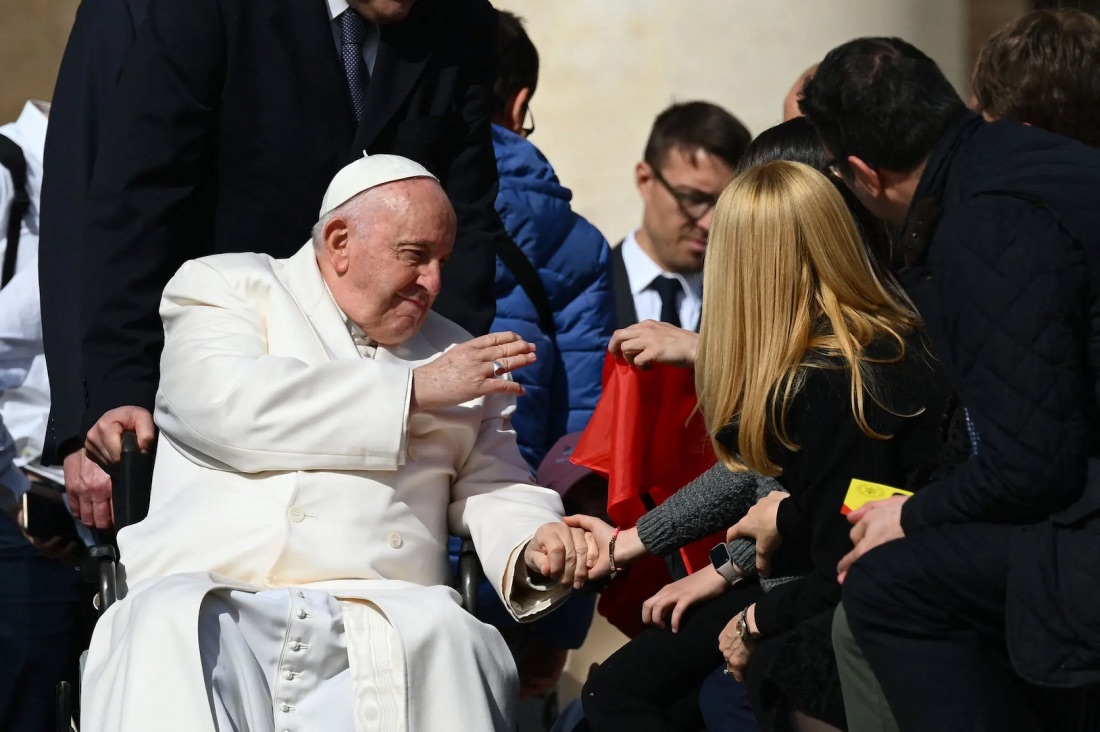VATICAN CITY – Pope Francis addressed the annual gathering of the Minerva Dialogues, organised by the Vatican’s Dicastery for Education and Culture on Monday, March 27, 2023 emphasising the importance of ethical and responsible use of artificial intelligence (AI) and technology for the common good.
The Minerva Dialogues bring together experts from various fields, including scientists, engineers, business leaders, lawyers, philosophers, and Church representatives, to foster greater awareness of digital technologies’ social and cultural impact, particularly AI.
At the high-level annual gathering, the Pope expressed his appreciation for the ongoing dialogue surrounding the responsible use of technology, which he called “open to religious values.”
The pontiff also recognised technology’s immense benefits to various fields, such as medicine, engineering, and communications. It shows human creativity and nobility in participating in God’s creative action.
According to the Vatican News, Pope Francis acknowledged the potential for AI and machine learning to positively contribute to humanity’s future. Still, he warned that this potential could only be realized if developers remain committed to acting ethically and responsibly.
“I am convinced that dialogue between believers and nonbelievers on fundamental questions of ethics, science and art, and on the search for the meaning of life, is a path to peace and to integral human development,” Pope Francis said.
He expressed appreciation for the growing consensus on the need for development processes to respect values such as inclusion, transparency, security, equity, privacy, and reliability.
Emphasising the intrinsic dignity of every man and woman as the key criterion for evaluating emerging technologies, Pope Francis expressed concern about the growing inequality in the world due to digital technologies.
“From this perspective, I am convinced that the development of artificial intelligence and machine learning has the potential to contribute in a positive way to the future of humanity,” the Pope said.
“At the same time, I am certain that this potential will be realized only if there is a constant and consistent commitment on the part of those developing these technologies to act ethically and responsibly.
“It is reassuring to know that many people in these fields are working to ensure that technology remains human-centred, ethically grounded and directed toward the good,” he cautioned,
He posed important questions about whether national and international institutions can hold technology companies accountable for their products’ social and cultural impact and the potential risks of increased inequality undermining human and social solidarity.
Pope Francis also cautioned against relying solely on data and algorithms for social and economic decision-making, as societal prejudices and preconceptions can contaminate them. He stressed the importance of not allowing algorithms to limit or condition respect for human dignity, compassion, mercy, forgiveness, and hope for change.
In his concluding remarks, Pope Francis offered his prayers and gratitude for the participants’ efforts to listen to and reflect on each other’s contributions, emphasizing the need for scientific and technological innovation to be accompanied by greater equality and social inclusion.








![Reuben Abati: Nigeria, Trump And The US [MUST READ] embassies, Donald Trump speaks at the Conservative Political Action Conference on March 4, 2023, in National Harbor, Maryland. | Anna Moneymaker/Getty Images](https://www.thetrentonline.com/wp-content/uploads/2025/04/GettyImages-1471280907-100x70.jpg)



